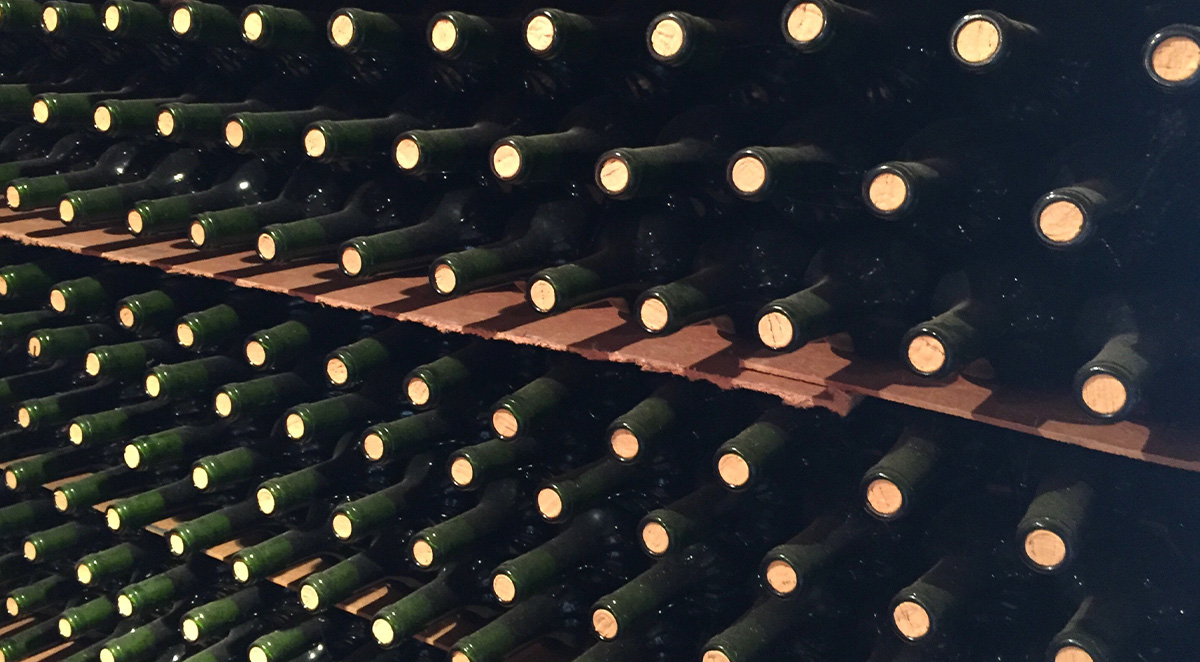Historical data suggests that fine wines from reputable regions have consistently appreciated in value over time, offering investors a reliable return on investment. A few of these reputable regions are:
- Bordeaux
- Burgundy
- Napa Valley
- Tuscany
- Champagne
Additionally, the wine market benefits from limited supply and increasing global demand. Fine wines, particularly those from renowned vintages and producers, are produced in finite quantities. As these wines are consumed, their rarity increases, driving up their market value.
The growing middle class in emerging markets and the expanding global appreciation for luxury goods further bolster demand. This supply-demand dynamic creates a favorable environment for wine investment, as scarcity and desirability push prices higher.
Moreover, wine investing offers portfolio diversification and the potential for tax advantages. Including alternative assets like wine in an investment portfolio can enhance its overall performance by reducing exposure to the volatility of conventional financial markets. Wine's value tends to increase steadily over time, providing a counterbalance to more erratic investments.
In some jurisdictions, investments in wine can also enjoy tax benefits, such as being exempt from capital gains tax under certain conditions. This combination of diversification, stability, and potential tax advantages makes wine investing an appealing strategy for astute investors.
Knowledge Is Power In The Wine Investing World
Being knowledgeable before starting to invest in wine is crucial for several reasons, primarily due to the complexity, risks, and nuances involved in the market. Firstly, the fine wine market is highly specialized and requires an understanding of various factors that affect the value of wine, such as:
- Vintage quality
- Producer reputation
- Storage conditions
Knowledge about the historical performance of different wines, market trends, and the specifics of regions and vineyards can significantly influence investment decisions and outcomes. Without this expertise, investors may find it challenging to identify wines with high appreciation potential or might fall prey to overpaying for overhyped or inferior bottles.
Secondly, the wine investment market is susceptible to counterfeits and fraud, which can result in substantial financial losses. An informed investor is better equipped to verify the authenticity of wines and navigate the channels for purchasing and selling them. This includes understanding the provenance and documentation that come with high-value wines and knowing trusted sources and auction houses.
Knowledge about proper storage conditions is also essential, as improper storage can diminish a wine's quality and, consequently, its value. Awareness of these aspects helps in safeguarding investments and ensuring that the wines retain their worth over time.
Finally, being knowledgeable allows investors to maximize returns and manage their portfolios effectively. Wine investing is not just about buying and holding but also about timing the market correctly, understanding when to sell, and recognizing which wines to hold onto for longer-term gains.
Knowledgeable investors can track market signals, emerging trends, and changes in consumer preferences, enabling them to make informed decisions about when to diversify their collection or capitalize on market opportunities.
In essence, a well-informed approach to wine investing minimizes risks and maximizes the potential for profitable returns.
Five Things You Should Know Before Navigating The World Of Collectible Wines
Navigating the world of collectible wines involves a combination of education, strategic purchasing, proper storage, and market awareness. Here’s a detailed guide to help you get started and succeed in the world of wine collecting:
1) Educate Yourself
Begin by immersing yourself in wine knowledge. Understand the basics of wine production, regions, grape varieties, and vintages. Resources such as wine books, online courses, and wine magazines can provide valuable insights.
Attend wine tastings and join wine clubs to experience different styles and develop your palate. Networking with experienced collectors and industry professionals can also offer practical advice and firsthand insights.
2) Strategic Purchasing
When buying collectible wines, focus on renowned producers and prestigious regions known for producing high-quality wines that appreciate in value. Key regions include Bordeaux, Burgundy, Champagne, Napa Valley, and Tuscany. Research historical performance and expert reviews to identify promising vintages.
Start by purchasing a few well-regarded bottles rather than an extensive collection. Auctions, reputable wine merchants, and direct purchases from wineries are trustworthy sources. Ensure you obtain wines with documented provenance and authenticity to avoid counterfeits.
3) Proper Storage
The value and quality of collectible wines heavily depend on proper storage. Wines should be stored in a controlled environment with stable temperatures (around 55°F or 13°C), appropriate humidity levels (around 70%), and protection from light, vibrations, and strong odors.
Investing in a wine cellar or a professional wine storage facility can ensure optimal conditions. Proper storage not only preserves the wine’s quality but also maintains its value over time.
4) Market Awareness And Portfolio Management
Stay informed about market trends, emerging regions, and changing consumer preferences. Regularly read wine investment reports and follow industry news. Participate in wine auctions and tastings to gauge market sentiment.
Diversify your collection to balance risks and opportunities; this can include investing in different regions, vintages, and styles. Monitor the performance of your collection and be ready to sell at opportune times. Timing can significantly impact returns, so be aware of market cycles and demand trends.
5) Legal And Financial Considerations
Understand the legal and financial aspects of wine collecting. This includes knowledge of taxes, import/export regulations, and insurance. Depending on your location, there might be specific taxes on wine transactions or capital gains.
Insuring your collection against theft, damage, and natural disasters is crucial. Work with financial advisors who have experience in alternative investments to integrate your wine collection into your broader investment strategy.
By combining education, strategic buying, proper storage, market awareness, and legal/financial considerations, you can effectively navigate the world of collectible wines and build a valuable and enjoyable collection.
Metro Wines, Asheville, North Carolina
We at Metro Wines would love to help you in your wine-investing endeavor. There is always a sommelier on duty at Metro Wines, all with retail and restaurant experience, who can answer any questions you may have about collectible wines.
We believe wine is about community, family, and friends, and we would love to have you as a part of our community. We at Metro Wines offer a big shop selection with small shop service. Contact us today to get all the education you need to be successful in the world of collectible wines.


